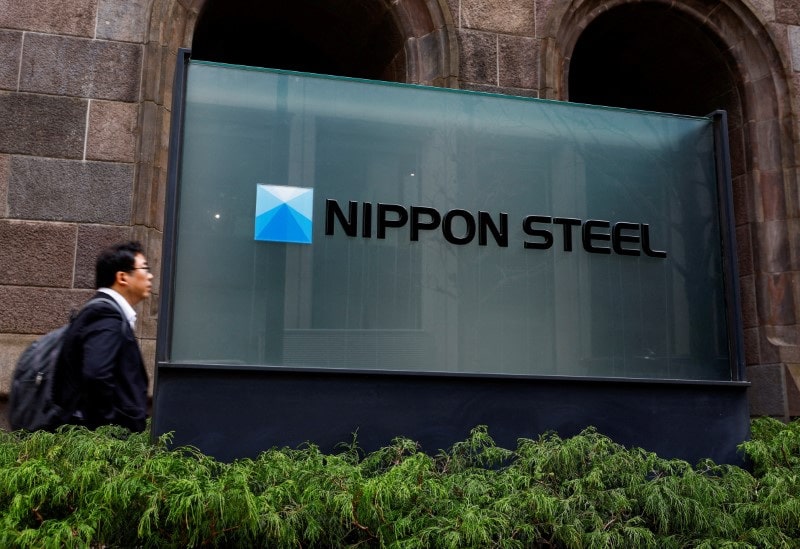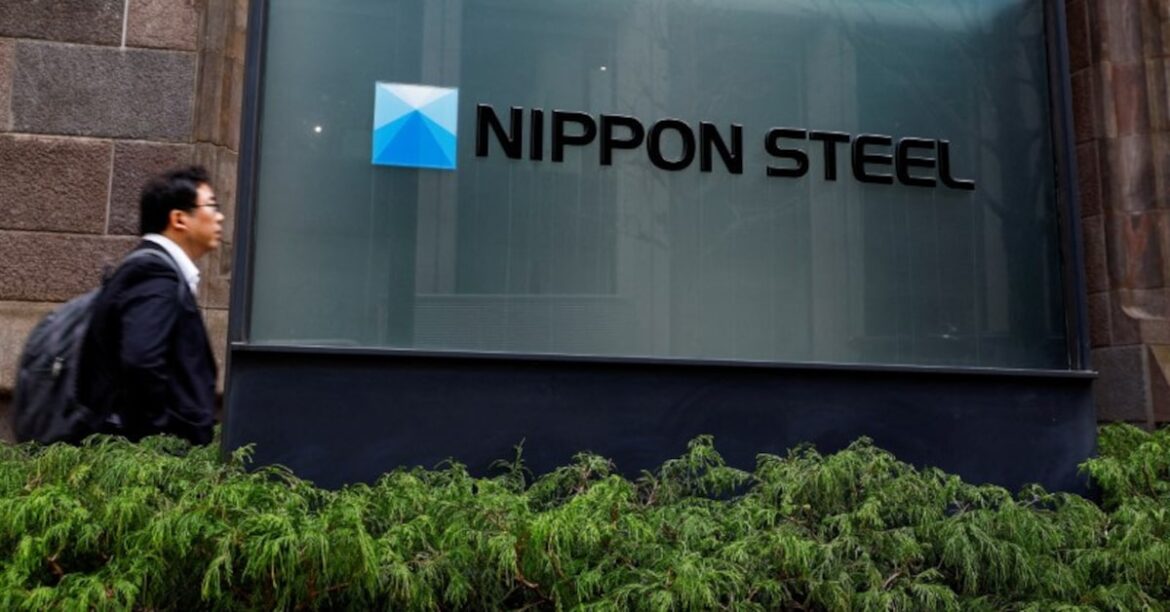
Nippon Steel logo is displayed at the company’s headquarters in Tokyo, Japan, April 1, 2024. REUTERS/Issei Kato/File Photo
HONG KONG, June 16 (Reuters Breakingviews) – Nippon Steel’s (5401.T), opens new tab $14.9 billion bid for United States Steel (X.N), opens new tab might seem of remote concern for most bankers in Tokyo and New York. Launched in a U.S. election year and involving a strategically crucial industry, it tripped over red lines that Japan’s surging outbound M&A usually doesn’t touch. Nonetheless, the White House’s unusual means of resolving its concerns – a golden share, opens new tab granting powerful veto rights – sets a worrying precedent.After an 18-month fight pitting the United Steelworkers union and rival bidder Cleveland-Cliffs against Nippon and U.S. Steel management, President Donald Trump on Friday signed off, opens new tab on the deal, with the parties promising $11 billion in new investments by 2028.
Sign up here.
It’s a crucial victory for Nippon, one that seemed unlikely after both Trump and his predecessor Joe Biden voiced opposition to the tie-up. Japanese production accounts for the vast majority of the industrial giant’s 66 million tons a year of steelmaking capacity. With its home market shrinking, boss Eiji Hashimoto has looked abroad for growth.
He can also benefit from the White House’s recent decision to double tariffs on imported steel to 50%. Any protectionist boost to the target’s profitability will be welcome: The 140% premium Nippon agreed to pay was set to cap the return on its investment at a meager 5%, Breakingviews calculates.
Investors, though, seem concerned. Nippon’s shares are 10% lower than when the deal was announced. Under the terms of a national security agreement, Nippon will need presidential sign-off on reducing or delaying investments and closing or idling plants ahead of an agreed-upon schedule. The perpetual preferred stock to be held by the U.S. government also exerts influence over employee salaries, overseas sourcing and acquisitions.
These are onerous restrictions on an ageing operator undergoing a costly technological transformation. They will steer the fate of a hugely consequential deal, ranking as the fifth-largest Japanese acquisition in the United States ever, according to Dealogic data.
Japanese firms’ focus on the U.S. has only been growing. Announced outbound deal volume of $70 billion year-to-date puts 2025 on course to be the strongest year for cross-border M&A between the two countries since 2018. The relationship, intuitively, should benefit from rising Sino-American tensions. Yet indiscriminate U.S. trade hostility, including levies on close partners, elevates domestic control above all else. The burdensome conditions on this deal could become a blueprint for anything touching the sprawling international supply chain. As protectionism in the U.S. rises, the terms of global dealmaking will tighten.
Follow Una Galani on LinkedIn, opens new tab and X, opens new tab.U.S. President Donald Trump on June 13 signed an executive order allowing Nippon Steel’s acquisition of United States Steel to proceed. Nippon had agreed to buy U.S. Steel for $14.9 billion in cash, including assumed debt, in December 2023.In a joint statement, the companies said they were entering into a National Security Agreement with the U.S. government that provides that approximately $11 billion in new investments will be made by 2028. The NSA also includes commitments related to governance, including a golden share to be issued to the U.S. government, they added.
Editing by Jonathan Guilford; Production by Maya Nandhini
Our Standards: The Thomson Reuters Trust Principles., opens new tab



AloJapan.com